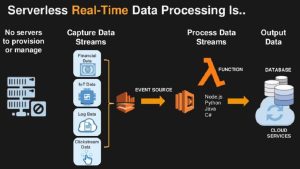Mobile web apps or do you prefer to buy mobile consumers?
Online commerce is now fully in place and more and more users who choose to go shopping without leaving home. But the computer is no longer the only device you can access shopping online, but the smartphone has become equally essential as a tool for shopping. Has thus opened up a scenario in which a mobile web retailer shares the spotlight with his app, and on the basis of the data of Pod, which are inclined to the second option end up spending more.
So it is revealed in a new report share data leave no doubt: during the last quarter of 2015 the average cost of a buyer via app was 2.6 times that of users who bought via mobile web and 1, greater than those bought via Internet 5. It seems clear therefore the potential of mobile applications for retailers: while those who used the app generated, on average, 5.85 pounds for retailers, the web only 2.25.

But the app not only resulted in increased spending, also at greater engagement, as users employing the application interacted 2.8 times the mobile web: while the top is recorded, on average, 7 sessions per user among the latter the figure was 2.5.
From Pod explain that “These findings reinforce what we already knew… That buyers have become immune to the impersonal promotions Mobile is generating more revenue because it is a more intimate way to buy online New technologies allow experiences of more segmented purchase that can improve consumer engagement.” And the difference between a buyer and a mobile app via satellite is that, usually, the former has a more regular relationship with the app (no one bothers to download an application just to make a purchase), which also influences when you feel the retailer as “closest”.
Mobile web applications are not used for the same actions
At present, the percentage of Internet users who visit an online store or via satellite mobile app is very similar (around 60%). But opt for either option depends on the type of task you want to perform, according to another report by Millward Brown: Users give priority to the search engines to intensive research work, while my triumph for those industries where the engagement is more common.
You may also like to read another article on AnarchismToday: Are you killing your mobile to traditional advertising and ads in the street?
That is, in areas where it is needed to compare prices, find materialistically products and purchases are occasional, such as electronics, automotive industry or tourism, the greater the percentage of visits via the web. In contrast, the industries with which we interact more frequently predominant use of applications, and in the case of retail, online banking or telecommunications.
It is also true that it is easy to understand that we are more willing to get off an app for one brand you’re going to spend more money or make more frequent purchases, which would also explain the relationship between the app and increased spending. Especially if we consider that, according to a study by the University of Iowa, you need not purchase occurs directly in the application, but having it discharged functions as an element that encourages the purchase at that and other channels.











Post Comment